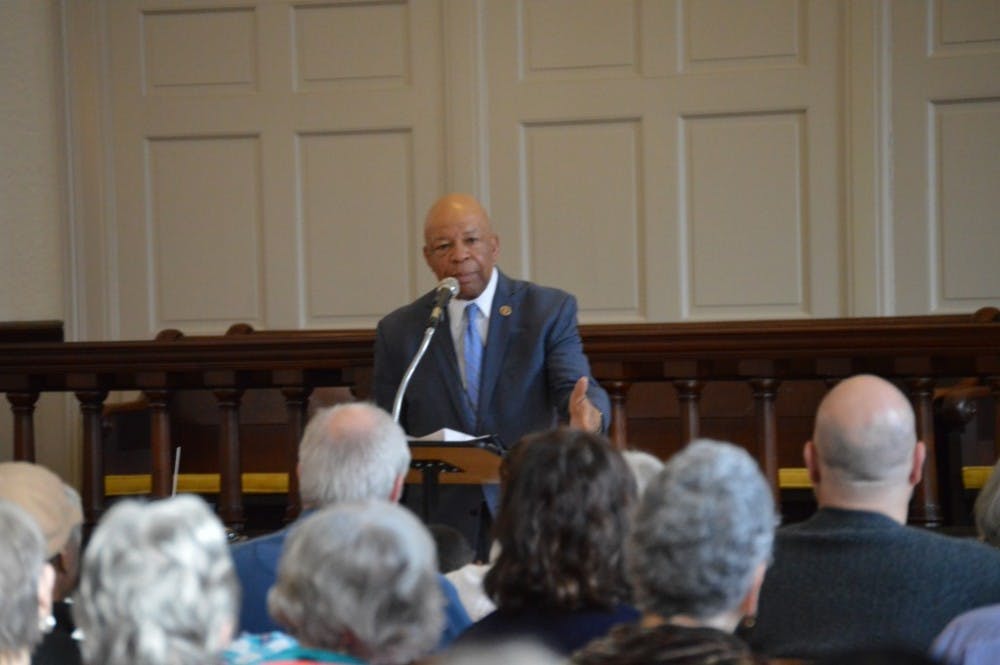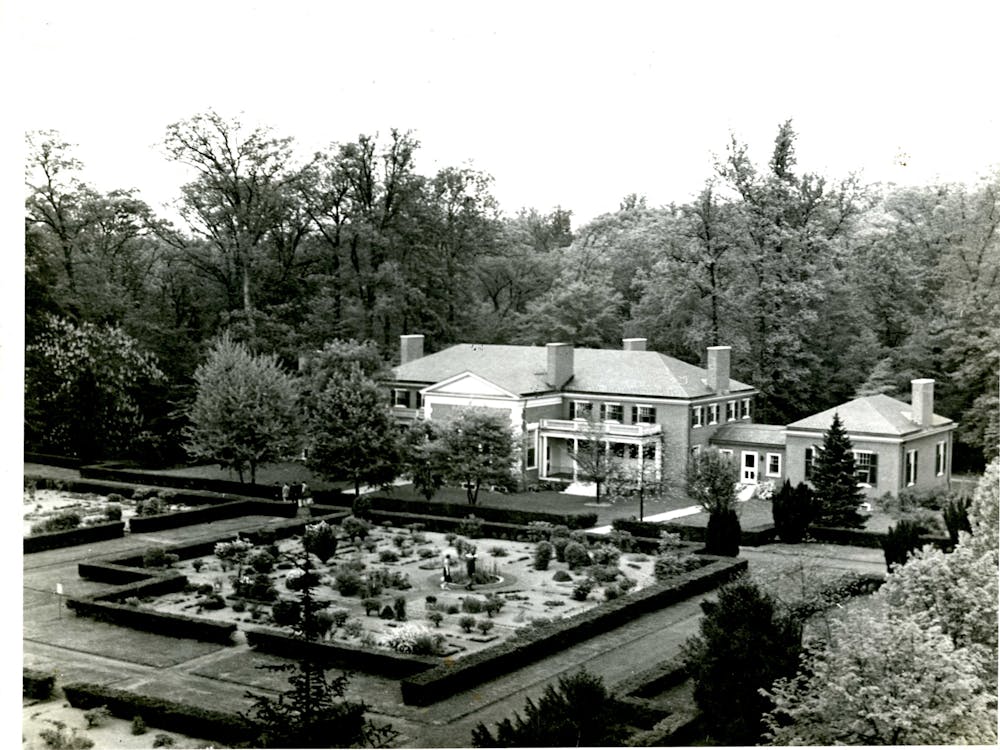Congressman Elijah Cummings (D-MD) spoke to Charles Village residents and Hopkins students at the Homewood Friends meetinghouse on Sunday. He addressed issues affecting the Baltimore community, focusing particularly on racism and education by using personal experience and anecdotes.
Cummings is the representative for Maryland’s 7th Congressional District, which includes a large portion of Baltimore City and Howard County. He has served in this position since 1996 and is a native of Baltimore.
Cummings said the purpose of his talk was to meet with his constituents.
“I want to have a conversation, which is going to be different. This is not a political speech. I’m just going to talk with you all like neighbors,” Cummings said. “I know that you come to this room today because you want to make a difference.”
Cummings delivered multiple anecdotes relating his experiences and thoughts on racism and education. He emphasized the need to avoid stereotyping people.
“One of the things that I’ve always been big on is that I wanted judges to run for office. It’s not that I want to see judges meeting lawyers and raising money. More importantly, I want them to have the opportunity to go into black neighborhoods before they start judging the people they start judging,” Cummings said. “If you’ve never come into my neighborhood, you’ve never met my father who never missed a day of work or my mother’s seven children who have never been arrested for anything. I want him to see them and not just the people he sees on the six o’clock news.”
He spoke to the reality of Baltimore as a city divided by racism and misconception.
“My point is, if we are trying to heal our society, we have got to figure out ways for me to see why you see what you see and for you to see why I see is what I see. And more importantly for us to come together and talk about and respect each other for what we have accomplished,” he said. “That is the way we will heal Baltimore. Because this is a divided city, whether you like it or know it or not.”
Cummings also gave a personal account of issues he faced in Baltimore’s education system.
“I am convinced that our children do not suffer from the inability to learn but many of them suffer from low self-esteem. And part of that low self-esteem comes from adults who do not treat them right. And the reason why I even talk about this is that I’ve been there, placed in special education from Kindergarten to the third grade,” Cummings said. “They told me that I’ll never be able to read or write, told by a school counselor that you will never be a lawyer. These words were imprinted that day into the DNA of every cell of my brain and they bothered me every day, even coming to this speech today. These words this man told to me over fifty years ago, I still feel the pain.”
Cummings then described how a single question asked by a school counselor had an impact on his life and career choices.
“He asked me one question. Every time I ask a girl to dance with me, it came back up. When I went to law school, it came back up. When I got ready to run for office, it came back. He said, “Who do you think you are?” The school counselor asked me that — the one that was getting my tax dollars to lift me up and make me better,” he said. “If you are talking about ceilings, if you want a ceiling, the ceiling that is in your own head is one of the most dangerous and effective ceilings you can have.”
For the rest of the speech, Cummings recounted his experiences law school as well as his thoughts on the uprising after Freddie Gray’s death last spring.
Hopkins students reacted favorably to Cumming’s talk. Freshman Charles Ndiaye said he wanted to learn more about him.
“I thought it was really interesting,” Ndiaye said. “I thought a lot of what he said had truth to it. I just wish I knew more of him because I’m not very familiar with Elijah Cummings. I’ll probably go do research on him to see where he’s coming from.”
Freshman Craig Chikis said he wished the event had been better publicized so that more Hopkins students could have attended.
“I was shocked that the University didn’t advertise this event. No one really knew about it. I was actually walking back from getting a haircut. I walked past this sign and I know the Congressman’s profile pretty well, [and] I follow politics, so I wanted to come see it,” Chikis said. “You could really sense he has earnestness and is really sincere in his beliefs.”
Chikis explained what Hopkins students might gain from listening to Cummings.
“I don’t know how many people from Hopkins did come out and hear the talk. But I can say that if more students did come, it would provide a lot of perspective,” he said. “As [Cummings] said, ‘Seeing the world through other people’s eyes gives a lot of perspective.”
John McKusick, a volunteer at the event and member of Homewood Friends also spoke well of the event.
“What I heard was very inspiring. He certainly told a lot of stories and anecdotes, which enriched his perspectives,” McKusick said.
A lot of the volunteers and ushers for the event were students from the Friends School of Baltimore.
Paige Shephard, an event usher and student at the school, spoke highly of the talk.
“I thought it was very moving in all senses of the word,” she said. “He was able to captivate the audience as well as provide comic relief. And he was able to touch a lot of people. I was personally deeply influenced by what he said.”























Please note All comments are eligible for publication in The News-Letter.